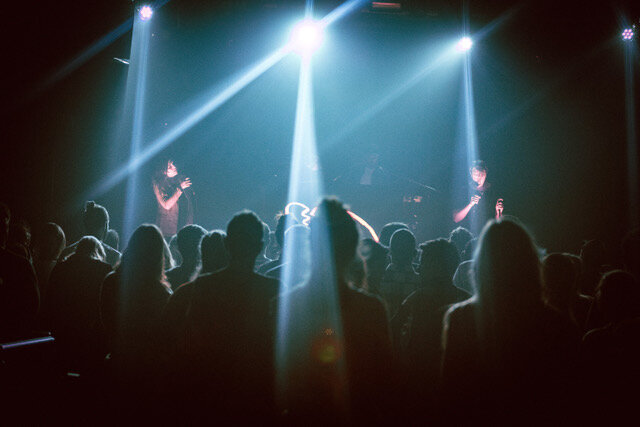Sally Anne Gross
Sally Anne Gross is both a music industry practitioner and an academic. In 1993 she was the first woman to be A&R Manager at Mercury Records UK, and she chaired the first ever panel on gender in the music industries at ‘In The City’ music conference in Manchester. Sally-Anne has been working in the music industry for nearly three decades, as an artist manager, record label director and international business affairs consultant. In her current role at the University of Westminster, she is the program director of the MA Music Business Managementwhere she teaches Intellectual Property and Copyright Management, Artist & Repertoire and Music Development.

Sally Anne has been announced as an Alt List 2020 Honoree as part of the 2020 shesaid.so list.
Congratulations Sally!
In 2016, she founded ‘Let’s Change the Record’ a project that focuses on bridging the gender divide in music production by running inclusive audio engineering and song-writing workshops for people identifying as women or non-binary.
Sally Anne is the co-author of ‘Can Music Make You Sick’ the largest ever study into mental health in the music industry that was funded by the charity Help Musicians UK and published in November 2017.
She is interested in working practices in the music industries and the conditions of digital labour and specifically how they impact on questions of diversity and equality.
Sally Anne has four grown-up children, all of whom work one way or another with music. And although she always identifies as a ‘native’ Londoner, she actually lives in North Hertfordshire.

Can Music Make You Sick?
The new book by Sally Anne Gross & George Musgrave
Watch Sally Anne Speak at Super Melting Pot
“What’s the benefit of breaking a taboo?” Listen to Sally Anne Gross on her experience of taboos in the music industry at Super Melting Pot.
Selected Publications
Can I Get a Witness? The significance on contracts in an age of musical abundance
2019
Innovation In Music: performance, technology and business New York Routledge. pp. 481-493
At this conjuncture, where digital technology has facilitated the production of musical products in unimaginable quantities and where the international copyright system is being stretched to its limits, many argue it is contractual regulations that are attempting to shape this complex web of creativity and commerce (Dean, Fisher, Gilbert). From the Copyleft movement to anti-piracy regulations and the problems of policing the digital ecosystem have tended to dominated industry, academic and policy discussions. More recently the attention has turned to the impact of the growing ‘gig’ economy and the boundaries of what is even understood as work in the digital age (Dean, 2013, Fisher, 2009, Fuchs, 2014). This paper seeks to turn the focus onto the place of contracting in the music ecosphere, paying particular attention to how the spectre of contracts impact on the creative process and the way in which music producers experience and give meaning to their work through contracts.
Continue Reading >
Well-being and Mental Health in the Gig Economy
2018
Policy Briefs 4
In the last decade or so, casual, short-term forms of employ- ment have increased significantly. This development has been linked to deindustrialisation and, more generally to the expansion of neoliberal economics globally. These changes have had a significant impact on labour relations as employers have moved away from offering long-term employment contracts favouring instead ‘flexible’ and freelance work, often based on zero-hours/on-demand contracts.
This mode of employment is now commonly referred to as the gig economy. These working conditions are often described as being particular to the so-called digital economy and its underlying business models. However, long before the arrival of the internet there certainly have been many industries that relied on this ‘work for hire’ model such as the building trade, agricultural work and many of the skilled trades including areas of cultural labour. However, the crea- tive industries are indeed characterised by these working conditions, where self-employment and short-term project based work have been the norm for decades.






